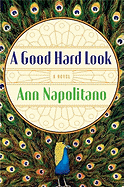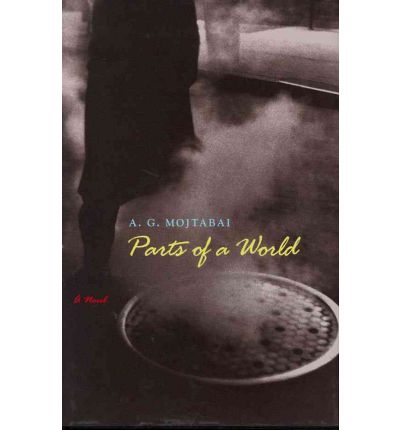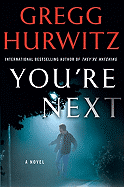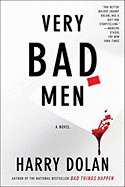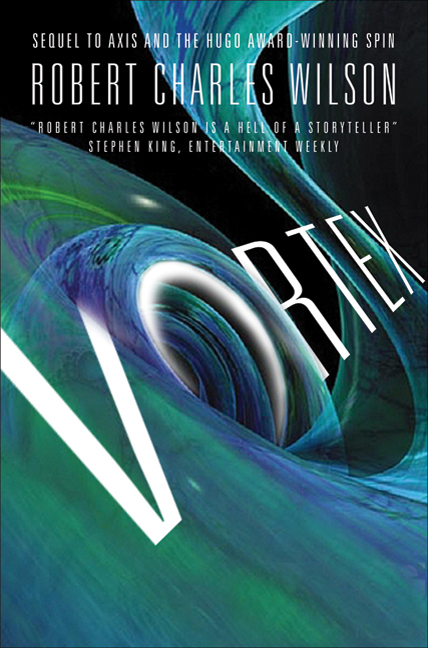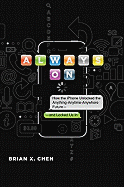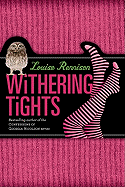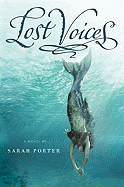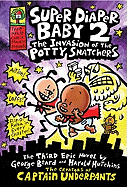Sometimes fictional characters spring from an author's creative subconscious. Sometimes they're based on historical people. And sometimes... they come from a doodle.
Sam Capra, the hero of Jeff Abbott's newly released thrilled Adrenaline, was born one day when Abbott doodled a picture of a globe. "For some reason, I drew a martini glass under it," said Abbott, speaking by telephone from his home in Austin, Texas. "I thought: What if I had a character who would own bars, bars around the world.... After all, bars are points of entry to communities. But how would this character come to own bars around the world? That's when Sam Capra was born."
 Abbott, who has written more than a dozen books, said he knew when he came up with Capra that he'd be writing a series. "I'll only do a series if I find a great main character, because basically doing a series means that for the next few years--sometimes more than a few--you're going to be married to that person!" He knew he wanted to do something completely fresh, and to give this "Sam Capra" a reason to travel the world without merely wandering. "My choice of his name was deliberate, too. 'Sam' was sort of an internationally flexible name, and so was 'Capra'--plus, I love the movies of Frank Capra and they give me a sense of hope. I wanted to give that to Sam, too."
Abbott, who has written more than a dozen books, said he knew when he came up with Capra that he'd be writing a series. "I'll only do a series if I find a great main character, because basically doing a series means that for the next few years--sometimes more than a few--you're going to be married to that person!" He knew he wanted to do something completely fresh, and to give this "Sam Capra" a reason to travel the world without merely wandering. "My choice of his name was deliberate, too. 'Sam' was sort of an internationally flexible name, and so was 'Capra'--plus, I love the movies of Frank Capra and they give me a sense of hope. I wanted to give that to Sam, too."
"I wanted someone who could walk away from an established career, but still be young," Abbott continued. "Readers will learn more about Sam's backstory in the next book, but basically he and his family lived all over the world while he was growing up because his mother and father worked for Episcopal relief missions. His mother did reparative surgery and his father was a financial administrator. So he had sort of a nomadic childhood that allows him to be comfortable in many different places."
Sam Capra is definitely a hero for the new global society, but Abbott points out that there are other things that make him a 21st-century hero. First, his enemies are different. "A lot of the suspense heroes still fight organizations that are very hierarchical, like the Mafia," Abbott noted. "But today, with 20% of the world economy drawn from illicit sources, criminal organizations have changed. They've branched out into separate 'cells,' each with an expertise. Groups can snap together and apart like Lego blocks, which makes it very hard to break them."
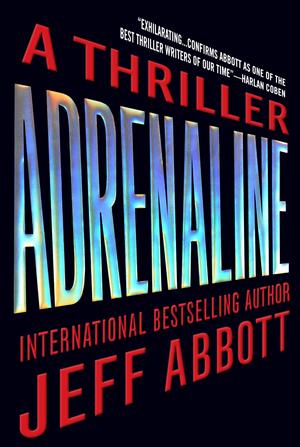 Abbott emphasized that he was interested in finding a new type of protagonist who would have the skills to handle a new type of threat. "Criminals love it when society and community feel weak. That's an opportunity for them," he says. "Criminals with very large aspirations are really fun to write about, and they're also really fun to pit an individual against. Sam Capra doesn't want to give up on things. He wants to believe in the goodness of people, and he does believe there are things worth fighting for in this world."
Abbott emphasized that he was interested in finding a new type of protagonist who would have the skills to handle a new type of threat. "Criminals love it when society and community feel weak. That's an opportunity for them," he says. "Criminals with very large aspirations are really fun to write about, and they're also really fun to pit an individual against. Sam Capra doesn't want to give up on things. He wants to believe in the goodness of people, and he does believe there are things worth fighting for in this world."
Without giving away anything that happens in Adrenaline, we can say that Sam knows what it is to be wronged. "He doesn't want anyone to have that same feeling," Abbott said. "He may never have a normal life again, but he wants to have a normal life again, he wants other people to have that opportunity."
Interestingly enough, one of Capra's skills led Abbott to a person who gives others the opportunity for normal lives. In the first chapter of Adrenaline, we follow Capra as he engages in the sport of parkour, which originated in France and is a way of getting from one place to another by running, jumping and climbing without stopping, if possible. Says Abbott, "Parkour is a way to get from point A to point B with maximum speed; it's a good metaphor for what Sam needs to do." It's also a young man's sport: "Jack Reacher is not doing parkour!" Abbott said with a laugh, referring to his fellow author Lee Childs's famed protagonist.
When Abbott decided to use parkour and to set his book's opening in London, he also arranged to meet that city's top traceur, as parkour runners are known. "This guy took me through parts of the city where he does practice runs--but he also took me to training programs that he does for underprivileged kids. Not only does he show them fitness moves they can do in their own neighborhoods, he helps them to build confidence."
Sam Capra's athletic temperament means that he's not a big drinker, but he does love bars, their atmosphere and well-mixed cocktails. In the next Capra book, At the Last Minute, we'll learn more about Sam's new bars, as well as his motivation, family and intriguing good-guy (good-gal?) boss, Mila. Abbott already has a "cocktail of the week" featured on his blog, and a YouTube channel for Sam Capra's favorite cocktails. "At BookExpo, the drink--recipe cards, including the Sam Capra Cooler and the Adrenalin Martini, went instantly," Abbott said. Here's to Sam Capra and to author Jeff Abbott's success!"--Bethanne Patrick
Portrait of the Artist: Jeff Abbott
 When it comes right down to it, while one way to read may have slight advantages over another in a given situation--and I'd certainly be more comfortable leaving a battered paperback on my beach chair than a shiny new e-reader--what matters isn't the way I read. I think I'm going to imitate a former president and put a sign on my desk. Mine will say, "It's the reading, stupid." --Bethanne Patrick
When it comes right down to it, while one way to read may have slight advantages over another in a given situation--and I'd certainly be more comfortable leaving a battered paperback on my beach chair than a shiny new e-reader--what matters isn't the way I read. I think I'm going to imitate a former president and put a sign on my desk. Mine will say, "It's the reading, stupid." --Bethanne Patrick


 Abbott, who has written more than a dozen books, said he knew when he came up with Capra that he'd be writing a series. "I'll only do a series if I find a great main character, because basically doing a series means that for the next few years--sometimes more than a few--you're going to be married to that person!" He knew he wanted to do something completely fresh, and to give this "Sam Capra" a reason to travel the world without merely wandering. "My choice of his name was deliberate, too. 'Sam' was sort of an internationally flexible name, and so was 'Capra'--plus, I love the movies of Frank Capra and they give me a sense of hope. I wanted to give that to Sam, too."
Abbott, who has written more than a dozen books, said he knew when he came up with Capra that he'd be writing a series. "I'll only do a series if I find a great main character, because basically doing a series means that for the next few years--sometimes more than a few--you're going to be married to that person!" He knew he wanted to do something completely fresh, and to give this "Sam Capra" a reason to travel the world without merely wandering. "My choice of his name was deliberate, too. 'Sam' was sort of an internationally flexible name, and so was 'Capra'--plus, I love the movies of Frank Capra and they give me a sense of hope. I wanted to give that to Sam, too." Abbott emphasized that he was interested in finding a new type of protagonist who would have the skills to handle a new type of threat. "Criminals love it when society and community feel weak. That's an opportunity for them," he says. "Criminals with very large aspirations are really fun to write about, and they're also really fun to pit an individual against. Sam Capra doesn't want to give up on things. He wants to believe in the goodness of people, and he does believe there are things worth fighting for in this world."
Abbott emphasized that he was interested in finding a new type of protagonist who would have the skills to handle a new type of threat. "Criminals love it when society and community feel weak. That's an opportunity for them," he says. "Criminals with very large aspirations are really fun to write about, and they're also really fun to pit an individual against. Sam Capra doesn't want to give up on things. He wants to believe in the goodness of people, and he does believe there are things worth fighting for in this world."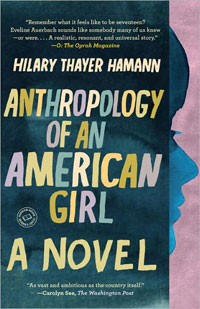 One of my very favorite novels of 2010 has just been published in paperback--Anthropology of an American Girl by Hilary Thayer Hamann (Spiegel & Grau, $16). Reading it last year was an exhilarating experience, and I will never forget this vivid story of growing up female in America. In reviewing it I said, "Where to start with this magnificent book? With the dazzling quality of Hilary Thayer Hamann's prose? With the themes of love and loss, trust and betrayal, innocence and maturity? With the tremendous satisfaction one feels at the end? There are so many ways to praise Anthropology of an American Girl, an exceedingly intense and passionate book; it's a romance in the grand sense, a rich, affecting experience"
One of my very favorite novels of 2010 has just been published in paperback--Anthropology of an American Girl by Hilary Thayer Hamann (Spiegel & Grau, $16). Reading it last year was an exhilarating experience, and I will never forget this vivid story of growing up female in America. In reviewing it I said, "Where to start with this magnificent book? With the dazzling quality of Hilary Thayer Hamann's prose? With the themes of love and loss, trust and betrayal, innocence and maturity? With the tremendous satisfaction one feels at the end? There are so many ways to praise Anthropology of an American Girl, an exceedingly intense and passionate book; it's a romance in the grand sense, a rich, affecting experience" 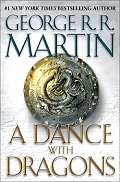 The long-awaited A Dance with Dragons: A Song of Ice and Fire, Book Five by George R.R. Martin is out next week and is sure to be snatched up quickly by devotees of the current A Game of Thrones adaptation on HBO. Yesterday, one of my friends mentioned that her father was captivated by Martin's books and wanted more like them, which made me think there might be others out there with the same need. So, if you like Game of Thrones and want more books like it....
The long-awaited A Dance with Dragons: A Song of Ice and Fire, Book Five by George R.R. Martin is out next week and is sure to be snatched up quickly by devotees of the current A Game of Thrones adaptation on HBO. Yesterday, one of my friends mentioned that her father was captivated by Martin's books and wanted more like them, which made me think there might be others out there with the same need. So, if you like Game of Thrones and want more books like it....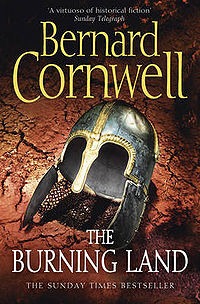 For more on divided kingdoms and plenty of historical detail, try Bernard Cornwell's the Saxon Chronicles series, which includes five titles so far and a new one, Death of Kings, due out in September. If you wind up enjoying Cornwell's writing, he has plenty of other series and standalones to choose from, too.
For more on divided kingdoms and plenty of historical detail, try Bernard Cornwell's the Saxon Chronicles series, which includes five titles so far and a new one, Death of Kings, due out in September. If you wind up enjoying Cornwell's writing, he has plenty of other series and standalones to choose from, too.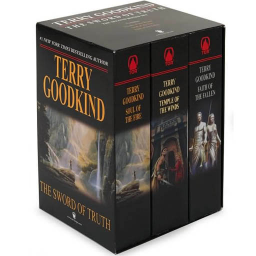 For clangs and clashes as fantasy, the Sword of Truth series by Terry Goodkind satisfies--and goes on for 12 volumes. Goodkind, a master of his genre, knows how to deliver exactly what readers of war and political fantasy want, so if you get started, you'll have plenty of... further reading.
For clangs and clashes as fantasy, the Sword of Truth series by Terry Goodkind satisfies--and goes on for 12 volumes. Goodkind, a master of his genre, knows how to deliver exactly what readers of war and political fantasy want, so if you get started, you'll have plenty of... further reading.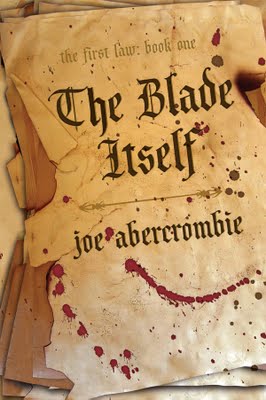 For something more recent and a little different, give Joe Abercrombie's the First Law trilogy a try. It hasn't been entirely well received, but the author's combination of humor and violence has plenty of fans. There is less "good versus evil" and more honor among thieves in these books.
For something more recent and a little different, give Joe Abercrombie's the First Law trilogy a try. It hasn't been entirely well received, but the author's combination of humor and violence has plenty of fans. There is less "good versus evil" and more honor among thieves in these books. Yes, this steamy news is all contained between the covers of a decidedly unsexy
Yes, this steamy news is all contained between the covers of a decidedly unsexy 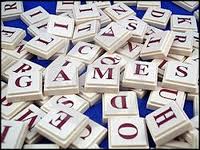 Flavorwire offers
Flavorwire offers 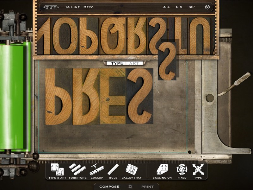 Just because you were born after the great age of the printing press doesn't mean you can't have fun sorting type and stamping paper--virtually.
Just because you were born after the great age of the printing press doesn't mean you can't have fun sorting type and stamping paper--virtually. 